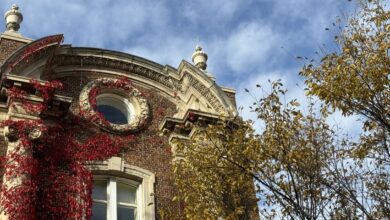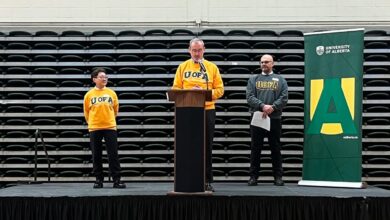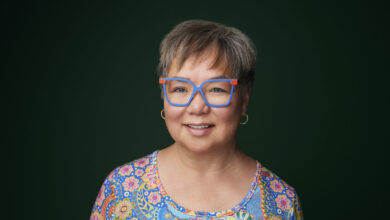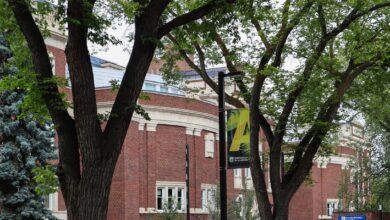Protesters gather for sit-in on anniversary of the Nakba
"As things escalate in Gaza, it is very important for us to remember that this is where it all began," media spokesperson says.
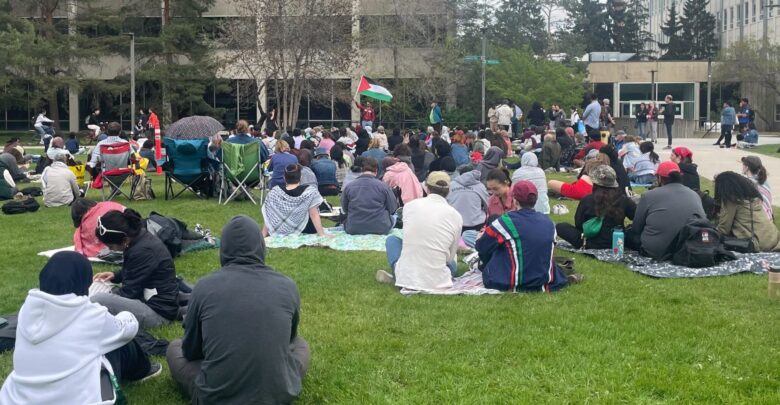 Lily Polenchuk
Lily PolenchukOn May 15 at 2:00 p.m., approximately 150 University of Alberta students, faculty, and community members attended a sit-in on the Main Quad. The sit-in’s programming included two teach-in sessions, felt watermelon patch-making, screen-printing, and a zine-making workshop.
At 5:07 p.m., a message was emailed to the U of A community from President and Vice-chancellor Bill Flanagan. The message said that on May 15, Flanagan met with representatives from the Association of Academic Staff of the University of Alberta (AASUA), U of A Graduate Students’ Association (GSA), Non-Academic Staff Association (NASA), and U of A Students’ Union (UASU). The unions requested an emergency meeting with Flanagan on May 13 about the removal of the Palestine solidarity encampment.
“I am committed to creating a space for respectful discussion about the past week’s events,” the message read. “The university has a clear legal and moral duty to take all reasonable measures to ensure the safety of the university community.”
According to Nour Salhi, a media spokesperson for the People’s University of Palestine YEG, the purpose of this sit-in was to commemorate the Nakba, which is remembered on May 15, 1948. According to the United Nations, the Nakba “refers to the mass displacement and dispossession of Palestinians during the 1948 Arab-Israeli war.”
“[That] is the day that 750,000 Palestinians were displaced from their homes under the threat that if they do not leave they will be killed. And those who did not leave were in fact murdered in very brutal ways,” Salhi said.
While May 15 marks 76 years since the Nakba, it also marks 76 years of occupation, Salhi said.
“Now we are at 76 years of this ongoing occupation that has been brutal and unjust. As things escalate in Gaza, it is very important for us to remember that this is where it all began.”
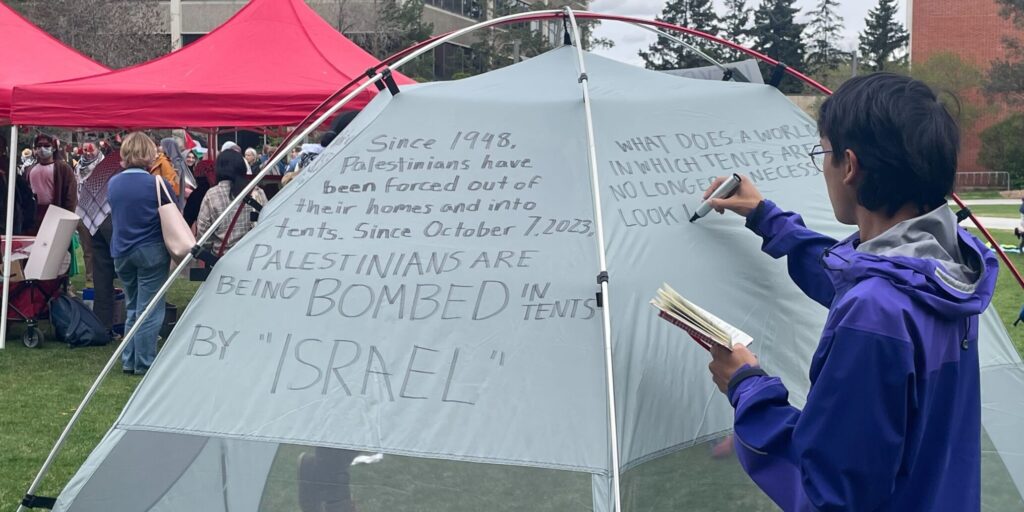
On May 11, the Edmonton Police Service (EPS) dispersed the Palestine solidarity encampment on Main Quad, which began May 9. According to Salhi, returning to the Main Quad is a form of resistance, especially as many of them were present when the encampment was dispersed.
“The same way that Palestinians continuously refuse to move, to leave their heritage, their culture, their land behind is their form of resistance,” Salhi said.
“We are here to resist the U of A’s actions and continue our demands for disclosing, divestment, defending — which clearly they did not do Saturday morning — and to declare their support for an immediate ceasefire, a two-way arms embargo, and full liberation of Palestine.”
“In protest of this ethnic cleansing, we try and make sure that Palestinian culture and heritage is constantly being taught,” Salhi said.
According to Salhi, the teach-ins are lessons about the Nakba and the history of Palestine. Teaching Palestinian history is a form of resistance “that has been used over and over again,” she said.
“Part of removing Palestinians from their land is removing their heritage and their culture,” Salhi said. “In protest of this ethnic cleansing, we try and make sure that Palestinian culture and heritage is constantly being taught.”
To start, Noor, a U of A student, gave a land acknowledgement and spoke about the Nakba. Noor said she is a third-generation Nakba survivor. She told those in attendance that May 15 is “a day of deep mourning for Palestinians.”
According to Noor, this year is a reminder “that the Nakba is not a memory, but present [and] continuous for Palestinains across Palestine and in exile.”
Lastly, Noor said that the demand for a ceasefire is “the floor, not the ceiling of our demands.” Rather, they are seeking complete liberation for Palestine.
Next, Eleyan Sawafta, a U of A PhD student in the department of political science, conducted the first teach-in. He spoke about the Nakba, settler colonialism, colonization, and freedom of expression.
Following Sawafta, Muna Saleh, an associate professor in the faculty of education at Concordia University and three-time U of A graduate, spoke about Palestinian history and the violence Palestinians experienced during the Nakba.
-With files from Leah Hennig

